Sheet
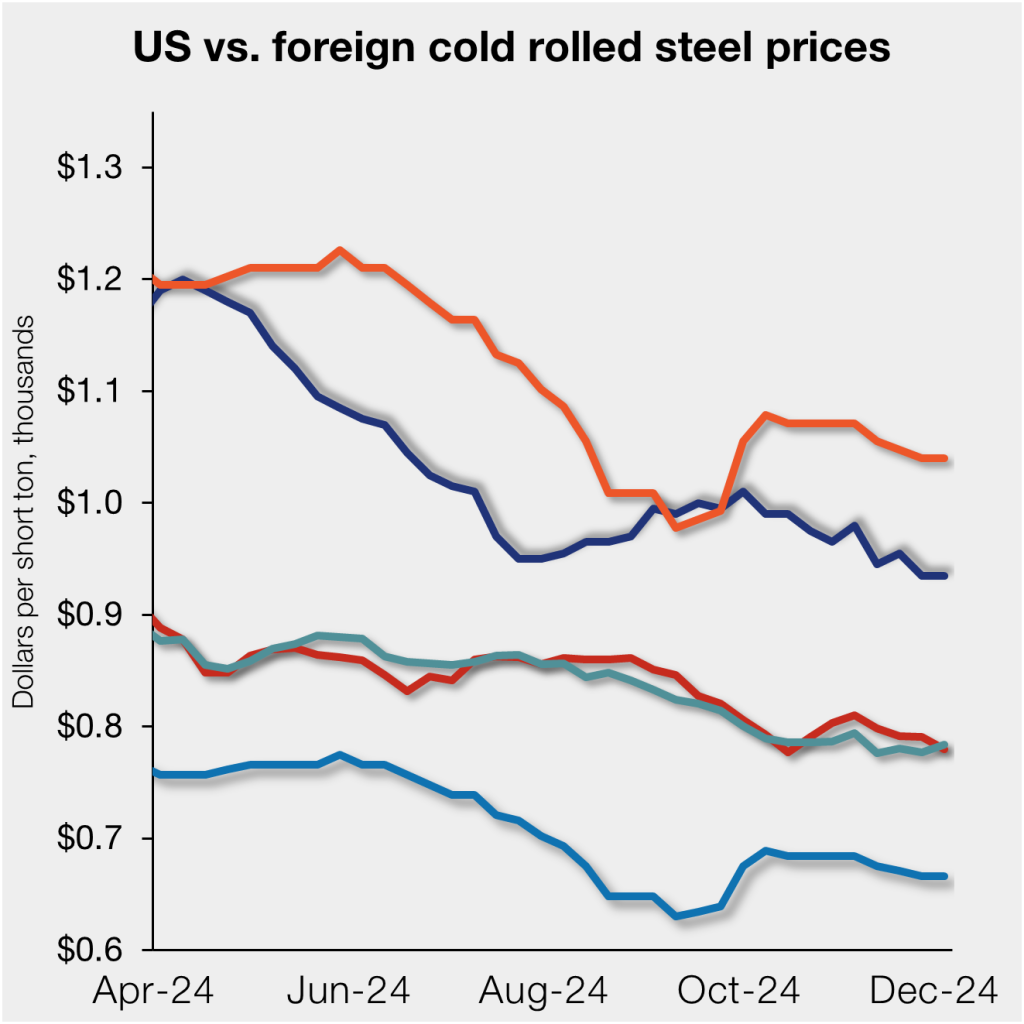
December 6, 2024
Domestic CRC prices hold, import tags mixed
Written by David Schollaert
The price spread between US-produced cold-rolled (CR) coil and offshore products on a landed basis was flat in the week ended Dec. 6.
Domestic CR coil tags were sideways week on week (w/w), while offshore products saw mixed results, keeping the stateside premium over imports unchanged.
US CR coil prices averaged $885 per short ton (st) in our check of the market on Tuesday, Dec. 3, flat vs. the prior week. Prices peaked at $1,325/st in January before falling nearly $450/st by summer. They have since fluctuated by roughly $25/st, slipping to a 15-month low of $885/st last week.
Domestic CR prices are, theoretically, 16.6% more expensive than imports. That’s nearly even with 16.5% last week but still well removed from a 31.5% spread in early January.
In dollar-per-ton terms, US CR is now, on average, $118/st more expensive than offshore prices (see Figure 1). That’s up $1/st from last week but is still well below a recent peak of $311/st in mid-January.
The charts below compare CR coil prices in the US, Germany, Italy, South Korea, and Japan. The left-hand side shows prices over the last two years. The right-hand side zooms in to highlight more recent trends.
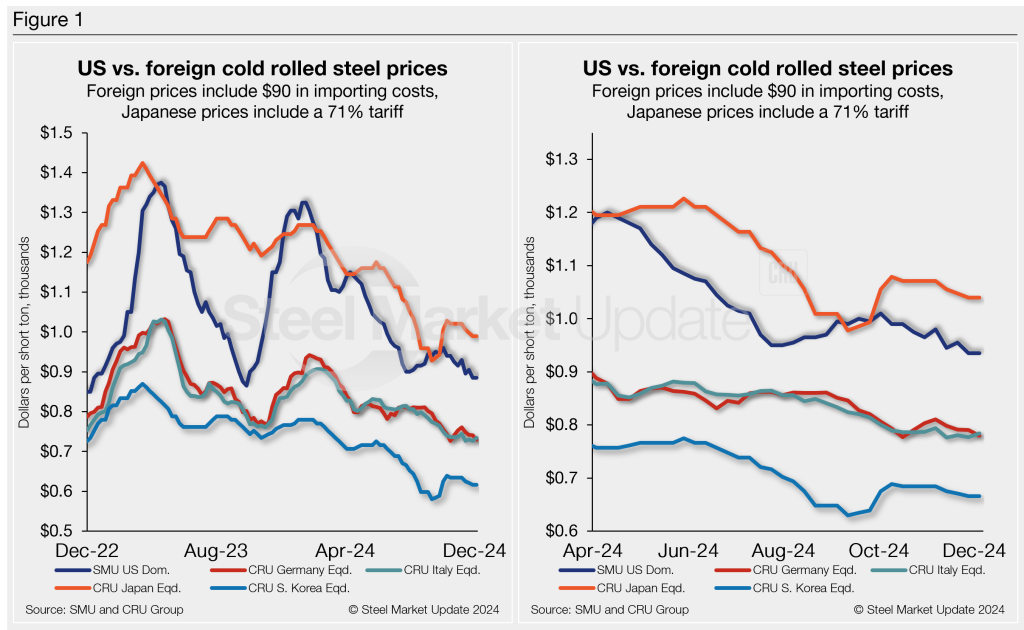
Methodology
This is how SMU calculates the theoretical spread between domestic CR prices (FOB domestic mills) and foreign CR prices (delivered to US ports): We compare SMU’s US CR weekly index to the CRU CR weekly indices for Germany, Italy, and East Asia (Japan and South Korea). This is only a theoretical calculation. Import costs can vary greatly, influencing the true market spread.
We add $90/st to all foreign prices as a rough means of accounting for freight costs, handling, and trader margin. This gives us an approximate CIF US ports price to compare to the SMU domestic CR price. Buyers should use our $90/st figure as a benchmark and adjust up or down based on their own shipping and handling costs. (Editor’s note: If you import steel and want to share your thoughts on these costs, please get in touch with the author at david@steelmarketupdate.com.)
East Asian CR coil
As of Thursday, Dec. 5, the CRU Asian CR price was $526/st, unchanged w/w and ~$18/st lower than a month ago. Adding a 71% anti-dumping duty (Japan, theoretical) and $90/st in estimated import costs, the delivered price to the US is $990/st. The theoretical price of South Korean CR exports to the US is $616/st.
As noted above, the latest SMU CR price is $885/st on average, which puts US-produced CR theoretically $105/st below CR product imported from Japan but $269/st above CR imported from South Korea.
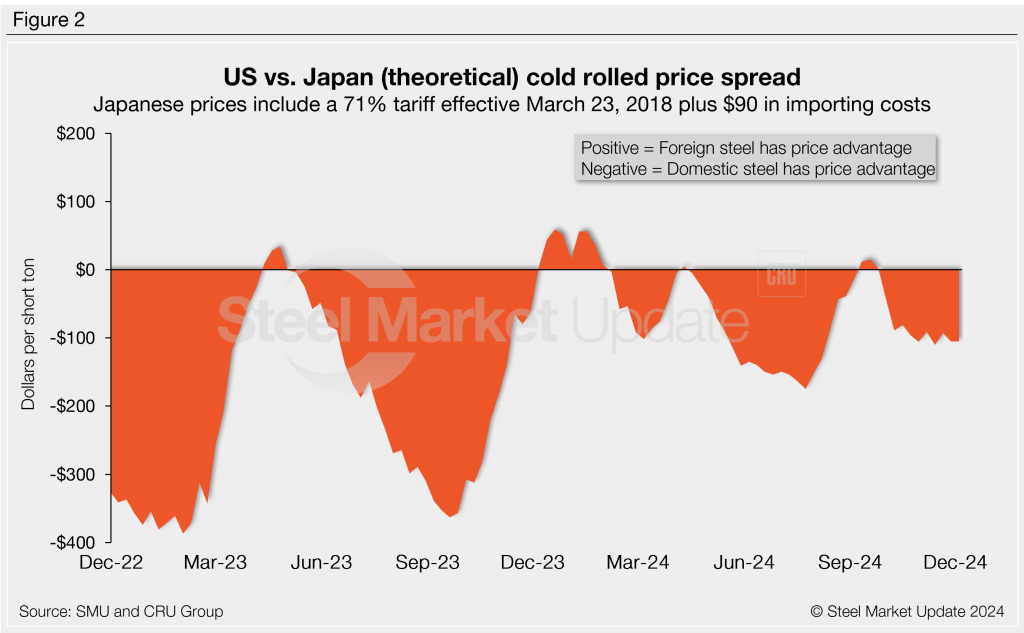
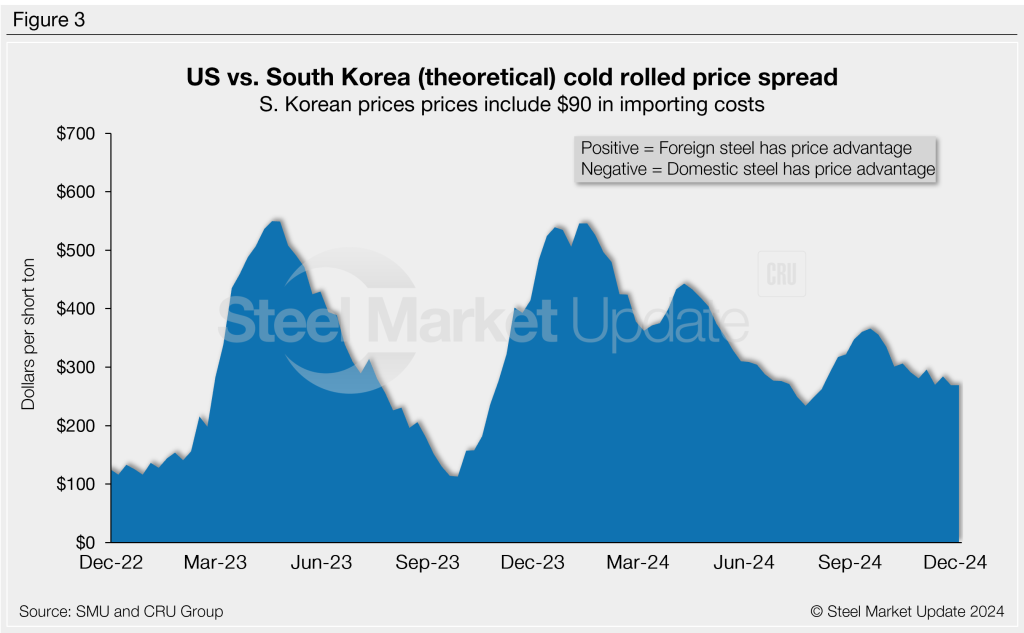
Italian CR coil
Italian CR prices were $644/st, up $7/st this week. After adding import costs, the price of Italian CR delivered to the US is, in theory, $734/st.
That means domestic CR is theoretically $151/st more expensive than CR coil imported from Italy. The spread is down $7/st from last week but still ~$280/st below a recent high of $453/st mid-December.
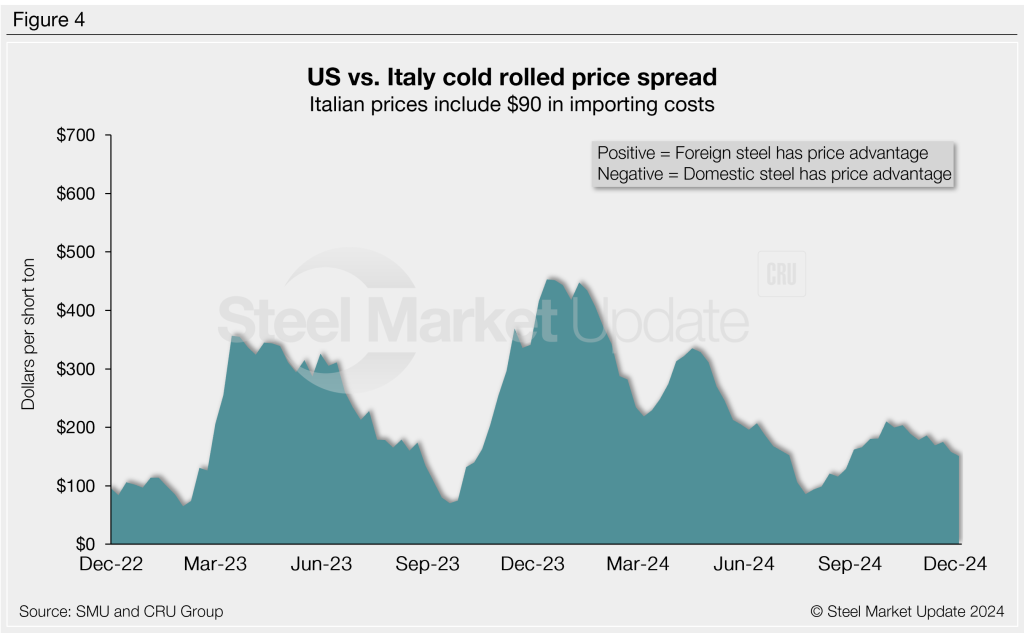
German CR coil
CRU’s German CR price was down $10/st vs. the previous week. After adding import costs, the delivered price of German CR is, in theory, $730/st.
The result: Domestic CR is theoretically $155/st more expensive than CR imported from Germany. The spread is $10/st higher w/w and well below a recent high of $428/st in the first week of 2024.
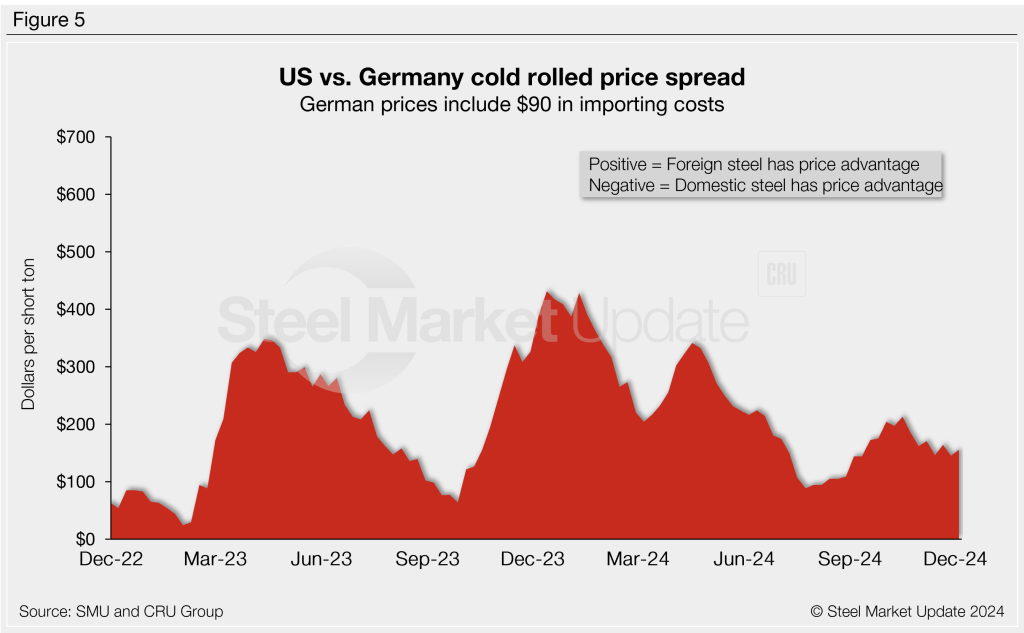
Notes: We reference domestic prices as FOB the producing mill, while foreign prices are CIF the port (Houston, NOLA, Savannah, Los Angeles, Camden, etc.). Inland freight from either a domestic mill or a port is important to keep in mind when deciding where to source from. It’s also important to factor in lead times. In most market cycles, domestic steel will deliver more quickly than foreign steel. Note also that, effective Jan. 1, 2022, the blanket 25% Section 232 tariff was removed from most imports from the European Union. It was replaced by a tariff rate quota (TRQ). Therefore, the German and Italian price comparisons in this analysis no longer include a 25% tariff. A similar TRQ with Japan went into effect on April 1, 2022. South Korea is subject to a hard quota rather than a tariff.







